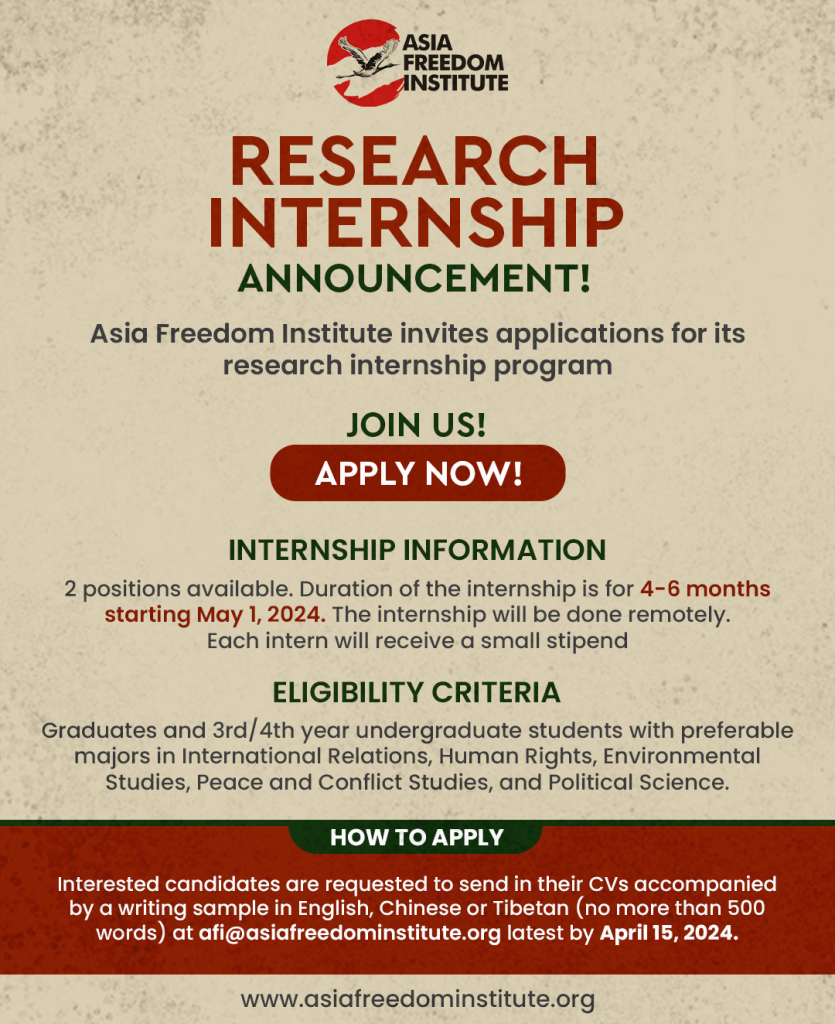China Change, a US nonprofit founded by Chinese nationals, interviewed Ai Weiwei, the Chinese contemporary artist, documentarian and activist in May 2023 in Portugal and published the interview in three parts on its website in late June and early July 2023. Here are selected excerpts from the interview:
I believed the whole (2008) Olympics was a farce. It had been turned into a propaganda feast to glorify the Party, attributing all of China’s development to the CCP alone.
I believe the fundamental problem of China lies not with the Communist Party alone, but that China’s culture and history have been destroyed. While the Communist Party is largely responsible for this destruction, the nation as a whole is in fact in a period of tremendous decline. It’s more or less irredeemable, and there is no need to salvage it. It’s best to let it die.
China is a society without structure, without ecology. It’s a society without religion. It’s a society without national or racial characteristics. It is a society of “no predecessors, no successors,” a society of loose sand. In Chinese society, the more systematically organized people are actually those who are not Chinese, like Tibetans or Uyghurs, because they have a religion, a nationality, a language, or customs. That will not change, no matter how hard the CCP tries to assimilate them or make them disappear. As for the Han people, the so-called Han people, there is no Han nationality. Mongolians have basically been assimilated. So have the Manchurians.
The pursuit of freedom is the most important quality in the human spirit. This quality does exist in China, on a certain level. I think in Chinese society, the desire for freedom has a deep foundation in traditional Chinese culture, like when Chinese people say they want to be free without bondage, or be themselves, or have a sense of presence on a superficial level, such as in their relationship with others, and their family. An individual doesn’t care so much about their relations with society beyond family, colleagues, and friends — no higher or deeper than that. This is because China is not a religious society; it is devoid of the concept of living for an ideal, which is lacking or quite rare. So, the freedom we are talking about is a superficial freedom.
My forebears were Chinese rooted in that land. As for me, right from birth, I was rejected as one of the “five black categories.” Then I left the country on my own in my early twenties for the United States, and didn’t return to China until I was 36 years old. At that point, China had actually become a rather strange place for me, unrecognizable and undefinable. It had turned from an autocratic society to an authoritarian capitalist one, until I was eventually forced to leave again. So, I’m a person who has no particular no sense of national identity, because in China, I’ve always been treated as an alien. Also in China, I haven’t had a place to call home, because my family was exiled to the northeast, then to Xinjiang in the northwest, then we moved back to Beijing. Soon after that I left for New York City. There is not a plot, a corner, a street, or a street lamp that I’m familiar with. I have no story, no narrative there; everything is torn apart. That’s how I see my existence in China.
For me, freedom of speech is the manifestation and validation of life. Without it, life ceases to be life. It’s not just an activity in life where you struggle, for example, to make a voice heard. Like temperature and heart beat, freedom of expression is a vital sign of life.
The West is essentially under despotic capitalism, a centralized corporatist society. It’s different from China’s despotism, but they share many commonalities, that is, to dismantle or abolish freedom of speech.
My conflict with authoritarianism and society is a deeper one. It’s not about a certain political party or a certain incident; it’s about how humanity maintains individual dignity and life, and how a life perfects itself. Under any circumstances, the first condition is that there must be guarantees for freedom of speech and freedom of expression. Without this condition, we cannot consummate ourselves in any society.
For More:

